Peter Schat - Complete Works (12CD BoxSet) (2006)
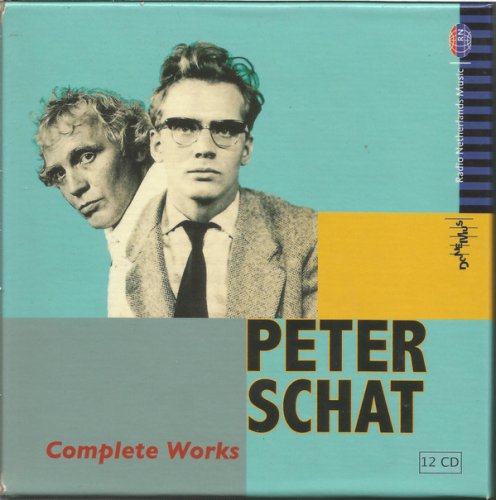
Artist: Peter Schat
Title: Complete Works
Year Of Release: 2006
Label: NM Classics
Genre: Classical
Quality: APE (image+.cue,log,scans)
Total Time: 13:10:16
Total Size: 3.6 Gb
WebSite: Album Preview
Tracklist: Title: Complete Works
Year Of Release: 2006
Label: NM Classics
Genre: Classical
Quality: APE (image+.cue,log,scans)
Total Time: 13:10:16
Total Size: 3.6 Gb
WebSite: Album Preview
CD 1:
1-2 Passacaglia and Fugue, op. 1
3-4 Introductie en Adagio in oude stijl, op. 2
5-6 Septet, op. 3
7-11 Octet, op. 4
12-13 Mozaieken, op. 5
14-16 Inscriptions, op. 6
17-18 Twee stukken, op. 7
19-23 Cryptogamen, op. 8
Passacaglia and Fugue
Lien van der Vliet, organ
Introductie en Adagio in oude stijl
Raphael Kwartet
Septet
Radio Blazers Ensemble olv David Porcelijn
Mozaieken
Radio Kamerorkest olv Ernest Bour
Inscriptions for piano
Hakon Austbo, piano
Twee Stukken
Rheinisches Kammerorchester olv Mauricio Kagel
Cryptogamen
John Brocheler, baritone - Rotterdams Philharmonisch Orkest olv Richard Dufallo
CD 2:
1 - The Fall, op. 9
2- Concerto da Camera, op. 10
3-9 Improvisations and symphonies, op. 11
10 - Entelechie I, op. 12
11 - Entelechie II, op. 13
The Fall, for sixteen voices
Nederlands Kamerkoor olv Hans van den Homberg
Concerto da camera, for 2 clarinets, piano, strings and percussion
Radio Kamerorkest olv Ernest Bour
Improvisations and Symphonies, for wind quintet
Van Gendt Kwintet
Entelechie I, for five instrumental groups
SWR Sinfonieorchester Baden-Baden und Freiburs olv Hans Rosboud
Entelechie II
Ileana Melita, mezzo-soprano - Ensemble Gaudeamus Music Week
CD 3:
1 - Signalement, op. 14
2-4 Collages
5- Dansen uit Labyrint, op. 15a
6 - De Aleph, op. 15e
7 - Clockwise and anti-clockwise, op. 17
Signalement, for 6 percussionists and 3 double-basses
Slagwerkgroep Amsterdam
Collages, for 31-tone organ
Joop van Goozen
from Labyrint: Dansen uit Labyrint
Koninklijk Concertgebouworkest olv Pierre Boulez
from Labyrint: De Aleph, for 4-track tape
Frits Weiland, Peter Schat
Clockwise and anti-clockwise, for 16 wind players
Radio Blazers Ensemble olv Peter Schat
CD 4:
1 - On Escalation, op. 18
2- Anathema, op. 19
3-4 - Hypothema, op. 20
5 - Thema, op. 21
6 - To You, op. 22
On Escalation, for 6 solo percussion players and orchestra
Residentie Orkest olv Richard Dufallo
Anathema, for piano
Theo Bruins, piano
Introduction to Hypothema by the composer
Hypothema, for recorders
Frans Bruggen, recorder
Thema, for solo oboe, guitars, organ and winds
Han de Vries, oboe, Nederlands Blazers Ensemble olv Peter Schat
To You, for voice, guitars, keyboard instruments, giant humming tops and electronics
Lucia Meeuwsen, mezzo-soprano, Ensemble Nederlands Muziekgala olv Kenneth Montgomery
CD 5:
1- Canto General, op. 24
from Houdini:
2 - I. May '75, a Song of Liberation, op. 25a
3 - II. "I'm Dying Bess"
4 - III. Fanfare
Canto General, in memoriam Salvador Allende. for mezzo-soprano, violin and piano
Lucia Meeuwsen, mezzo-soprano - Vera Beths, violin - Reinbert de Leeuw, piano
from Houdini: Mau '75, a Song of Liberation - for mezzo-soprano, baritone and mixed choir
Lucia Meeuwsen, mezzo-soprano, Meinard Kraak, baritone, Groot Omroepkoor, Radio Philharmonisch Orkest olv Hans Vonk
from Houdini:
uit Houdini: Finale: Fanfare
Jennie Veeningo, soprano - Sarah Velden, mezzo-soprano - Jerold Norman, tenor - John Brocheler, baritone - Koor van de Nederlandse Opera, Steelband "Circle Ensemble", Koninklijk Concertgebouworkest olv Richard Dufallo
CD 6:
1-11 Kind en Kraai, op. 26
12-15 Symphony no. 1, op. 27
Kind en Kraai, for soprano and piano
Ellen Schuring, soprano - Hakon Austbi?, piano
Symphony No. 1
Koninklijk Concertgebouworkest olv Sir Colin Davis
CD 7:
1-12 Aap Verslaat de Knekelgeest, op. 28
13 - Polonaise, op. 29
Aap verslaat de Knekelgeest, een strip-opera
Nationale Reisopera: Monique Krus, soprano - Gary Boyce, countertenor - Richard Zook, tenor - Tom Sol, baritone - Piet Vansichen, bass baritone - Ensemble Beestenboel, Vincent de Kort
Polonaise, for piano
Jacob Bogaart, piano
CD 8:
1-4 Symphony no. 2, op. 30
5 - Serenade, op. 31
6 - Adem, op. 32
Symphony No. 2
Koninklijk Concertgebouworkest olv Bernard Haitink
Serenade, for strings
Radio Filharmonisch Orkest olv Richard Dufallo
Adem, for mixed choir
Nederlands Kamerkoor olv Huub Kerstens
CD 9:
1 - from Symphonies, op. 33:- De Trein, op. 33a
2-13 De Hemel, op. 37
from Symposion: De Trein (The Train) for 5 male voice and orchestra
Henk Smit, baritone - Charles van Tassel, baritone - Lieuwe Visser, baritone - Guus Hoekman, bass - Hein Meens, tenor, Koninklijk Concertgebouworkest olv Hans Vonk
De Hemel, Twaalf symfonische variaties
Radio Filharmonisch Orkest olv Hans Vonk
CD 10:
1 - Etudes, op. 39
2 - Alarm, op. 40
3-4Een Indisch Requiem, op. 41
5 - Rondgang, op. 42
6 - The Food of Love, op. 43
Etudes, for piano and orchestra
Jean-Yves Thibaudet, piano - Radio Filharmonisch Orkest olv Hans Vonk
Alarm, for carillon and church bells
Todd Fair, Oude Kerk - Bernard Winsemius, Zuiderkerk - Arue Abbenes, Koninklijk Paleis op de Dam
Een Indisch Requiem, for tenor mixed choir and orchestra
Thomas Young, tenor - Radio Filharmonisch Orkest, Groot Omroepkoor olv Hans Vonk
Rondgang, for chamber orchestra
Amsterdam Sinfonietta olv Etienne Siebens
The Food of Love, for mezzo-soprano, tenor and chamber orchestra
Myra Kroese, mezzo-soprano - Marcel Beekman, tenor - Amsterdam Sinfonietta olv Etienne Siebens
CD 11:
1 - Arch Music for St. Louis, op. 44
2-5 Symphony no. 3, op. 45
6 - Genen, op. 47
7 - The Wallpeckers, op. 48
Arch Music for St. Louis, for orchestra
Radio Filharmonisch Orkest olv Hans Vonk
Symphony No.3, 'Gamelan'
Koninklijk Concertgebouworkest olv Hans Vonk
Genen, for violin and piano
Janine Jansen, violin - Bart van de Roer, piano
The Wallpeckers, a toccata for orchestra
Noord-Hollands Philharmonisch Orkest olv Jurjen Hempel
CD 12:
1-6 To Whom, op. 23
7 - Lenteconcert, op. 36
8 - De Toonklok, op. 34
To Whom, for soprano and ensemble
Tannie Willemstijn, soprano - Nederlands Blazers Ensemble olv Etienne Siebens
Lenteconcert, for flute and orchestra
Eleonore Pameijer, flute, Het Gelders Orkest olv Neal Stulberg
De Toonklok, for mechanical clock
Indra Polak, software application
The Dutch composer Peter Schat (1935-2003) enjoyed a composing career of about 47-48 years. By coincidence, his own official tally of his compositions numbers 48 works, according to his own opus numbering of his works. Although the introduction to the booklet by Anton Zijderveld and Emile Wennekes notes that this 48 isn't quite what it appears, with other works outside the official tally and such, it's good enough as a starting point here. This 12-CD album features 45 separate works of Peter Schat, going roughly in chronological and opus number order. Space does not permit a full discussion here of all 45 selections. Rather, this review will make more general observations, with some comments on interesting facets or individual quirks of this album.
In general, the journey of Schat as a composer can be seen in several stages, such as early modernist, strict serialism, politically radical (left-leaning), a gradually increasing engagement with musical tradition, and ultimately, his development of the "Toonklok" ("Tone Clock") theory as a compositional framework. The "Tone Clock", probably Schat's single biggest contribution to music composition theory and history, starts from the idea that any combination of three notes in the 12-note chromatic scale can count as a triad. With that idea, the conclusion is that 12 such chords are possible, and can be used as hours (sort of signposts) for the "Tone Clock".
In their introduction, Zijderveld and Wennekes also state that Schat's music is variable in quality (like any composer). However, perhaps a bit coyly, they make no explicit statements about their opinions about particular works in that sense. Likewise, the actual commentaries on the works by Bas van Putten generally make the best case for each work, avoiding negative comments. He also likes to emphasize Schat's "maverick" statements of protest against the perceived restrictions and dogmatism of total serialism.
The great majority of the recordings in this set came from the Dutch radio archives, of live concert performances of the Peter Schat works in question. However, these performances do not include any applause after them, although the odd cough from the audience indicates the original provenance of those live performances. Just a handful of these works are featured in studio recordings. In general, the performances are good, certainly never less than decent. Likewise, the recording quality is generally OK, perfectly fine radio broadcast sound from those archive recordings. The earliest recording is from March 1960, the 'Twee Stukken' (Two Pieces), op. 7, while the latest recordings are from May 2001, the Symphony No. 3 (5/19/2001), 'The Wallpeckers' (5/21/2001), and the 'Lenteconcert', or 'Spring Concerto' (5/25/2001). In the case of 'The Wallpeckers', this recording is the most blatant example of the exclusion of applause, as it ends quite loudly, but the sound at the end of the music is faded quickly to leave the applause out.
On a more granular level, several of the live performances derive from a single concert on 6/17/2000, a short time after Peter Schat's 65th birthday, by the Netherlands Radio Philharmonic Orchestra and conductor Hans Vonk. Vonk was perhaps the single most forthright champion of Schat's music. This is evidenced not only by the number of performances led by Vonk in this set, but also from pictures that show stills from productions of several of Schat's operas, where Vonk was the conductor, but also from the picture of the two of them in discussion. From personal past memory, Vonk also led performances of "De hemel" (The Heavens; February 1997) and "Arch Music for St. Louis" (January 1999) during his tenure as music director of the St. Louis Symphony, at which Schat was present. Interestingly, the Netherlands Radio Philharmonic performances seem to have greater fluidity and ease from the orchestra than what I remember of the SLSO performances, granted that they took place well over 15 years back.
The "abridged" in the title needs elaboration, and is the main source of the debits in this presentation, as massive and impressive as it generally is, given the scale of the task. Schat wrote several full-scale operas or "music-theatre" works, 'Labyrinth', op. 15 (1960-1965), 'Houdini', op. 25 (1974-1976), and 'Symposion', op. 33 (1982-1989). In the case of these three works, the complete operas are not included in this set, but rather excerpts or suites. In addition, texts are not provided for these excerpts. This is especially a problem in 'De Trein' ('The Train'), op. 33a, which is based on the opening scene of 'Symposion', because 3 of the main male roles are baritones, and unless you know Dutch or listen very hard for clues in single words, you can't tell which part is being sung.
As well, texts are omitted in other works, like in the op. 28 chamber opera 'Aap verslaat de Knekelgeest' ('Monkey Subdues the White-Bone Demon') and op. 41 'Een Indisch Requiem' (An East Indian Requiem), presumably for reasons of space, as noted in the booklet. In other cases, like the op. 26 settings of Harry Mulisch poems 'Kind en Kraai' (Child and Crow), no translations of the Dutch texts are given. On the brighter side of things, some small nice surprises include the names of Frans Bruggen (@1970) and a quite young Janine Jansen (@2000) among the list of performers, respectively in 'Hypothema' (op. 20) and 'Genen' (Genes, op. 47).
In terms of the overall presentation, even with the omissions of sung texts and various other issues, this is certainly by far the most convenient way to study the music of Peter Schat, for those with that interest. This is the kind of recording compilation that could never possibly succeed on a commercial level, to be sure. Even on more academic and specialized levels, the market for this set is probably niche in the extreme. But if you're in that niche and have an interest in this composer, and you want to go the total immersion route into the music of Peter Schat, this would be the set to get.
In general, the journey of Schat as a composer can be seen in several stages, such as early modernist, strict serialism, politically radical (left-leaning), a gradually increasing engagement with musical tradition, and ultimately, his development of the "Toonklok" ("Tone Clock") theory as a compositional framework. The "Tone Clock", probably Schat's single biggest contribution to music composition theory and history, starts from the idea that any combination of three notes in the 12-note chromatic scale can count as a triad. With that idea, the conclusion is that 12 such chords are possible, and can be used as hours (sort of signposts) for the "Tone Clock".
In their introduction, Zijderveld and Wennekes also state that Schat's music is variable in quality (like any composer). However, perhaps a bit coyly, they make no explicit statements about their opinions about particular works in that sense. Likewise, the actual commentaries on the works by Bas van Putten generally make the best case for each work, avoiding negative comments. He also likes to emphasize Schat's "maverick" statements of protest against the perceived restrictions and dogmatism of total serialism.
The great majority of the recordings in this set came from the Dutch radio archives, of live concert performances of the Peter Schat works in question. However, these performances do not include any applause after them, although the odd cough from the audience indicates the original provenance of those live performances. Just a handful of these works are featured in studio recordings. In general, the performances are good, certainly never less than decent. Likewise, the recording quality is generally OK, perfectly fine radio broadcast sound from those archive recordings. The earliest recording is from March 1960, the 'Twee Stukken' (Two Pieces), op. 7, while the latest recordings are from May 2001, the Symphony No. 3 (5/19/2001), 'The Wallpeckers' (5/21/2001), and the 'Lenteconcert', or 'Spring Concerto' (5/25/2001). In the case of 'The Wallpeckers', this recording is the most blatant example of the exclusion of applause, as it ends quite loudly, but the sound at the end of the music is faded quickly to leave the applause out.
On a more granular level, several of the live performances derive from a single concert on 6/17/2000, a short time after Peter Schat's 65th birthday, by the Netherlands Radio Philharmonic Orchestra and conductor Hans Vonk. Vonk was perhaps the single most forthright champion of Schat's music. This is evidenced not only by the number of performances led by Vonk in this set, but also from pictures that show stills from productions of several of Schat's operas, where Vonk was the conductor, but also from the picture of the two of them in discussion. From personal past memory, Vonk also led performances of "De hemel" (The Heavens; February 1997) and "Arch Music for St. Louis" (January 1999) during his tenure as music director of the St. Louis Symphony, at which Schat was present. Interestingly, the Netherlands Radio Philharmonic performances seem to have greater fluidity and ease from the orchestra than what I remember of the SLSO performances, granted that they took place well over 15 years back.
The "abridged" in the title needs elaboration, and is the main source of the debits in this presentation, as massive and impressive as it generally is, given the scale of the task. Schat wrote several full-scale operas or "music-theatre" works, 'Labyrinth', op. 15 (1960-1965), 'Houdini', op. 25 (1974-1976), and 'Symposion', op. 33 (1982-1989). In the case of these three works, the complete operas are not included in this set, but rather excerpts or suites. In addition, texts are not provided for these excerpts. This is especially a problem in 'De Trein' ('The Train'), op. 33a, which is based on the opening scene of 'Symposion', because 3 of the main male roles are baritones, and unless you know Dutch or listen very hard for clues in single words, you can't tell which part is being sung.
As well, texts are omitted in other works, like in the op. 28 chamber opera 'Aap verslaat de Knekelgeest' ('Monkey Subdues the White-Bone Demon') and op. 41 'Een Indisch Requiem' (An East Indian Requiem), presumably for reasons of space, as noted in the booklet. In other cases, like the op. 26 settings of Harry Mulisch poems 'Kind en Kraai' (Child and Crow), no translations of the Dutch texts are given. On the brighter side of things, some small nice surprises include the names of Frans Bruggen (@1970) and a quite young Janine Jansen (@2000) among the list of performers, respectively in 'Hypothema' (op. 20) and 'Genen' (Genes, op. 47).
In terms of the overall presentation, even with the omissions of sung texts and various other issues, this is certainly by far the most convenient way to study the music of Peter Schat, for those with that interest. This is the kind of recording compilation that could never possibly succeed on a commercial level, to be sure. Even on more academic and specialized levels, the market for this set is probably niche in the extreme. But if you're in that niche and have an interest in this composer, and you want to go the total immersion route into the music of Peter Schat, this would be the set to get.
DOWNLOAD FROM ISRA.CLOUD
CD1 Peter Schat Complete Works 06 2903.rar - 399.8 MB
CD2 Peter Schat Complete Works 06 2903.rar - 365.5 MB
CD3 Peter Schat Complete Works 06 2903.rar - 310.8 MB
CD4 Peter Schat Complete Works 06 2903.rar - 405.1 MB
CD5 Peter Schat Complete Works 06 2903.rar - 277.4 MB
CD6 Peter Schat Complete Works 06 2903.rar - 309.2 MB
CD7 Peter Schat Complete Works 06 2903.rar - 348.6 MB
CD8 Peter Schat Complete Works 06 2903.rar - 262.7 MB
CD9 Peter Schat Complete Works 06 2903.rar - 293.5 MB
CD10 Peter Schat Complete Works 06 2903.rar - 318.8 MB
CD11 Peter Schat Complete Works 06 2903.rar - 236.0 MB
CD12 Peter Schat Complete Works 06 2903.rar - 164.6 MB
CD1 Peter Schat Complete Works 06 2903.rar - 399.8 MB
CD2 Peter Schat Complete Works 06 2903.rar - 365.5 MB
CD3 Peter Schat Complete Works 06 2903.rar - 310.8 MB
CD4 Peter Schat Complete Works 06 2903.rar - 405.1 MB
CD5 Peter Schat Complete Works 06 2903.rar - 277.4 MB
CD6 Peter Schat Complete Works 06 2903.rar - 309.2 MB
CD7 Peter Schat Complete Works 06 2903.rar - 348.6 MB
CD8 Peter Schat Complete Works 06 2903.rar - 262.7 MB
CD9 Peter Schat Complete Works 06 2903.rar - 293.5 MB
CD10 Peter Schat Complete Works 06 2903.rar - 318.8 MB
CD11 Peter Schat Complete Works 06 2903.rar - 236.0 MB
CD12 Peter Schat Complete Works 06 2903.rar - 164.6 MB
![David Hillyard & The Rocksteady Seven - Home For Dinner (2026) [Hi-Res] David Hillyard & The Rocksteady Seven - Home For Dinner (2026) [Hi-Res]](https://img.israbox.com/img/2026-02/19/i90pm6wt5icib19ylzpzq7dyv.jpg)
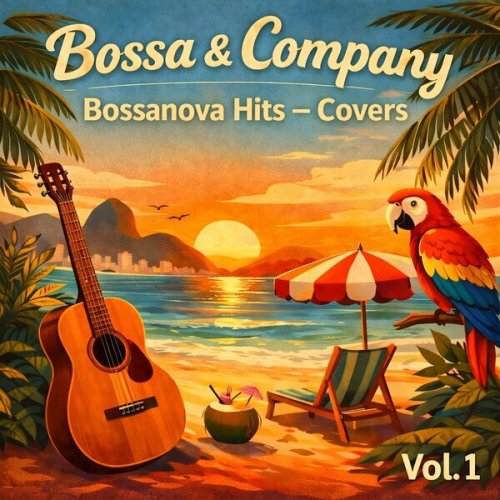
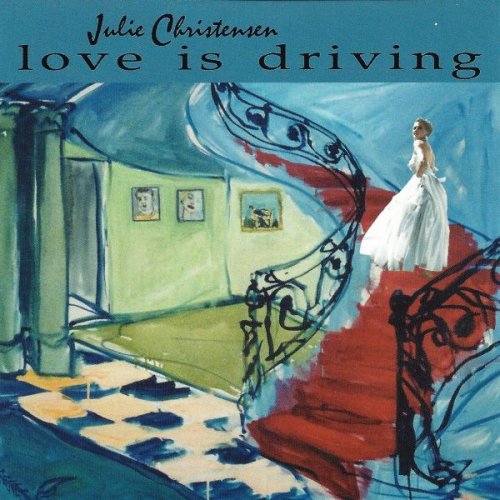
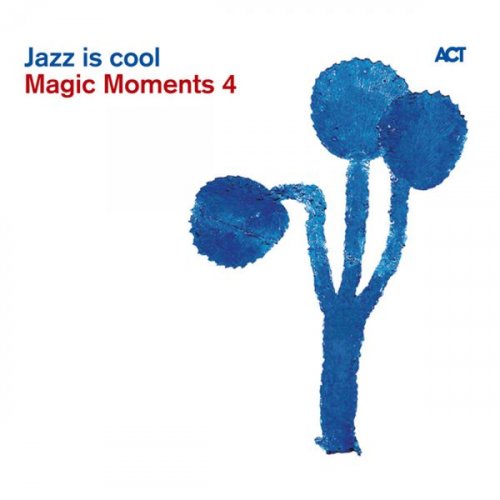
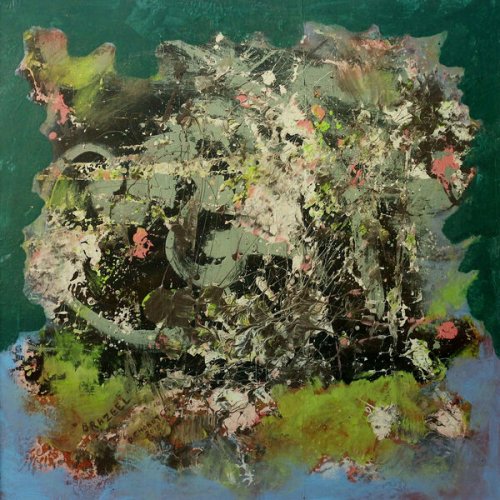
![Joe Pass - Virtuoso (1974) [2025 DSD256] Joe Pass - Virtuoso (1974) [2025 DSD256]](https://www.dibpic.com/uploads/posts/2026-02/1771609997_ff.jpg)
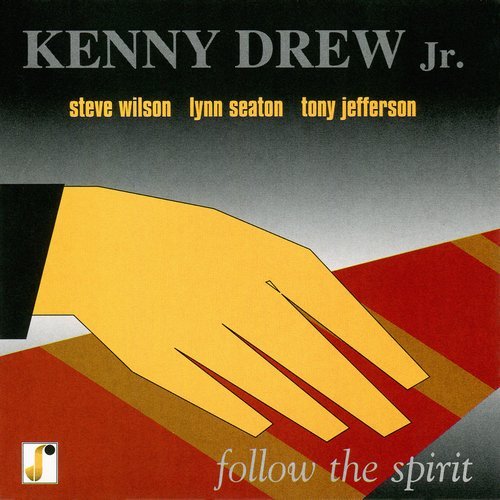

![Dominique Fils-Aimé - My World Is The Sun (2026) [Hi-Res] Dominique Fils-Aimé - My World Is The Sun (2026) [Hi-Res]](https://www.dibpic.com/uploads/posts/2026-02/1771404623_folder.jpg)